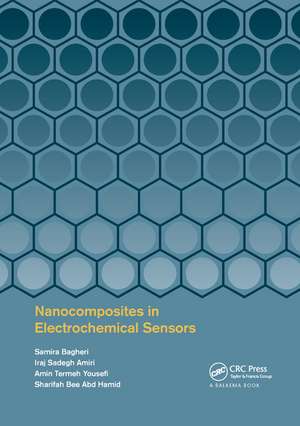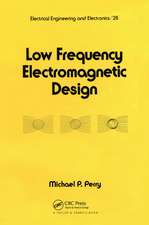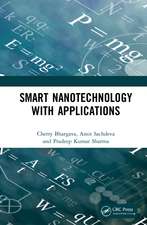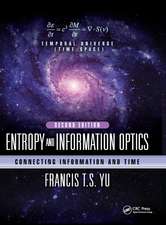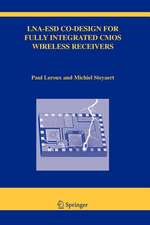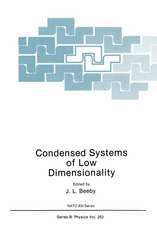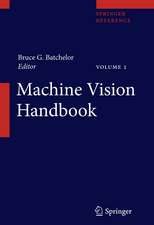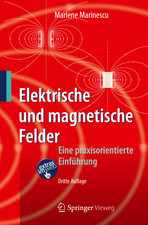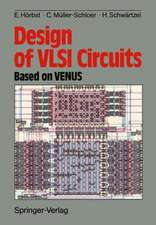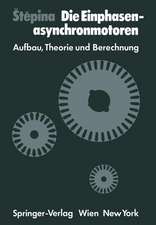Nanocomposites in Electrochemical Sensors
Autor Samira Bagheri, Iraj Sadegh Amiri, Amin Termeh Yousefi, Sharifah Bee Abd Hamiden Limba Engleză Paperback – 12 dec 2019
Preț: 325.34 lei
Preț vechi: 371.71 lei
-12% Nou
Puncte Express: 488
Preț estimativ în valută:
62.25€ • 65.16$ • 51.81£
62.25€ • 65.16$ • 51.81£
Carte tipărită la comandă
Livrare economică 31 martie-14 aprilie
Preluare comenzi: 021 569.72.76
Specificații
ISBN-13: 9780367887445
ISBN-10: 0367887444
Pagini: 156
Dimensiuni: 174 x 246 x 10 mm
Greutate: 0.45 kg
Ediția:1
Editura: CRC Press
Colecția CRC Press
ISBN-10: 0367887444
Pagini: 156
Dimensiuni: 174 x 246 x 10 mm
Greutate: 0.45 kg
Ediția:1
Editura: CRC Press
Colecția CRC Press
Public țintă
Postgraduate and ProfessionalCuprins
Introduction
Literature Review
Experimental procedures and Materials
Fabrication of Cobalt(II) Immobilized ZnO/MWCNT/PCL Nanocomposite Film: Electrocatalytic Detection of Glucose
Synthesis and Characterization of Gelatin Stabilized Anatase Titanium Dioxide Nanoparticles via the Sol-Gel Method and its Applications for Sensitive Detection of L-Tryptophan
Fabrication of Ni(II)/PAN/MWCNT Nanocomposite Films Electrocatalytic Detection of Carbohydrates
Fabrication of Chitosan-Multi Walled Carbon Nanotube Nanocomposite Containing Ferri/Ferrocyanide: Applications for Simultaneous Detection of D-Penicillamine and L-Tryptophan
Conclusion
Literature Review
Experimental procedures and Materials
Fabrication of Cobalt(II) Immobilized ZnO/MWCNT/PCL Nanocomposite Film: Electrocatalytic Detection of Glucose
Synthesis and Characterization of Gelatin Stabilized Anatase Titanium Dioxide Nanoparticles via the Sol-Gel Method and its Applications for Sensitive Detection of L-Tryptophan
Fabrication of Ni(II)/PAN/MWCNT Nanocomposite Films Electrocatalytic Detection of Carbohydrates
Fabrication of Chitosan-Multi Walled Carbon Nanotube Nanocomposite Containing Ferri/Ferrocyanide: Applications for Simultaneous Detection of D-Penicillamine and L-Tryptophan
Conclusion
Notă biografică
Dr. Samira Bagheri is a senior lecturer in the Nanotechnology & Catalysis Research Centre, University of Malaya. She received her PhD (2013) from Nanotechnology & Catalysis Research Centre, University of Malaya. Samira’s main research interests are in the areas of carbon nanomaterials, such as carbon nanotubes, graphene oxide and graphene nanosheets, metal oxide nanocomposites advance smart nanohybrids, especially apply in electrochemical sensors, supercapacitors, fuel cells and environmental pollution management.
Dr. I. S. Amiri, received his B. Sc (Hons, Applied Physics) from Public University of Oroumiyeh, Iran in 2001 and a gold medalist M. Sc. from University Technology Malaysia (UTM), in 2009. He was awarded a PhD degree in photonics in Jan 2014. He has published more than 280 journals/conferences and books in Optical Soliton Communications, Nano photonics, Nonlinear Fiber Optics, Quantum Cryptography, Optical Tweezers, Nanotechnology, Biomedical Physics and Biotechnology Engineering
Dr. Amin Termeh Yousefi received his PhD (2015) from Malaysia-Japan International Institute of Technology , University Technology Malaysia . Dr. Amin joined to Kyushu Institute of Technology of Japan (2015) as a research fellow and his research interests are in the areas of carbon nanomaterials, such as carbon nanotubes (CNTs), graphene oxide and graphene nano-ribbon (GNR), carbon based biosensors, Electrochemical sensors, brain-like circuit based CNT-nanocomposite, CNTs based atomic-force microscopy tips, electronic tongue based biosensors, biological haptic finger via CNTs based nanocomposites, field-effect transistor based GNR, nanowire transistors, and brain like signals using CNTs-nanocomposites.
Prof. Sharifah Bee Abd Hamid is the Director of Nanotechnology & Catalysis Research Centre (NANOCAT), a potential National HICOE and UM COE. She completed her D
Dr. I. S. Amiri, received his B. Sc (Hons, Applied Physics) from Public University of Oroumiyeh, Iran in 2001 and a gold medalist M. Sc. from University Technology Malaysia (UTM), in 2009. He was awarded a PhD degree in photonics in Jan 2014. He has published more than 280 journals/conferences and books in Optical Soliton Communications, Nano photonics, Nonlinear Fiber Optics, Quantum Cryptography, Optical Tweezers, Nanotechnology, Biomedical Physics and Biotechnology Engineering
Dr. Amin Termeh Yousefi received his PhD (2015) from Malaysia-Japan International Institute of Technology , University Technology Malaysia . Dr. Amin joined to Kyushu Institute of Technology of Japan (2015) as a research fellow and his research interests are in the areas of carbon nanomaterials, such as carbon nanotubes (CNTs), graphene oxide and graphene nano-ribbon (GNR), carbon based biosensors, Electrochemical sensors, brain-like circuit based CNT-nanocomposite, CNTs based atomic-force microscopy tips, electronic tongue based biosensors, biological haptic finger via CNTs based nanocomposites, field-effect transistor based GNR, nanowire transistors, and brain like signals using CNTs-nanocomposites.
Prof. Sharifah Bee Abd Hamid is the Director of Nanotechnology & Catalysis Research Centre (NANOCAT), a potential National HICOE and UM COE. She completed her D
Descriere
Nanotechnology has become one of the most important fields in science. Nanoparticles exhibit unique chemical, physical and electronic properties that are different from those of bulk materials, due to their small size and better architecture. Nanoparticles can be used to construct novel sensing devices; in particular electrochemical sensors. Ele
